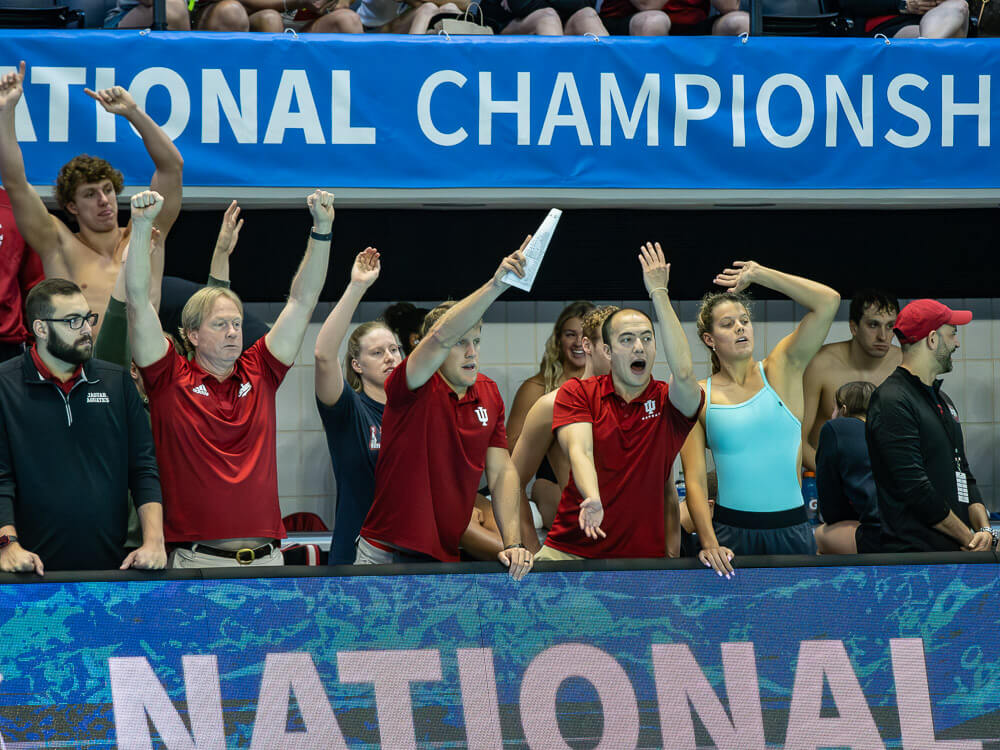BREAKING: Swimming Coaching Powerhouses USA, Canada, Australia and Great Britain Resign From World Coaching Body

BREAKING: Swimming Coaching Powerhouses USA, Canada, Australia and Great Britain Resign From World Coaching Body
In a bombshell pact, the American, Canadian, Australian, and British swim coaches associations have sensationally resigned from the World Swimming Coaches Association (WSCA).
In a joint statement, the American Swimming Coaches Association (ASCA), Swim Coaches and Teachers Australia (SCTA), Canadian Swimming Coaches Association (CSCA), and British Swimming Coaches Association (BSCA) – who represent over 40,000 coaches and teachers – have withdrawn their affiliation from their world governing body saying WSCA’s priorities do not align with the proposed future direction of the big four.
It is a major move that could well spell the end of WSCA which was founded in 1989 by the late Australian coach Paul Quinlan, a former Australian Coaches Association (now SCTA) Executive Director; the late former millionaire-Japanese coach, businessman and swim school owner Yutaka Terao and America’s widely outspoken and respected anti-doping crusader John Leonard – himself a former executive director of ASCA.
The purpose of the WSCA was to stand up to FINA (now World Aquatics), the International Olympic Committee (IOC), and the key National Federations and give the media non-US opinion from the world’s coaches, focusing primarily on anti-doping and swimming governance “for the good of the sport worldwide.”
Collectively ASCA, CSCA, SCTA and BSCA are the four largest swimming coaches associations in the world, saying it was a decision that “was not taken lightly” believing WSCA has dropped the ball in member engagement and satisfaction which they say is an essential component for all associations to strive for.
The following statement was signed by: Signed: Jennifer LaMont, CEO, American Swimming Coaches Association (ASCA); Brendon Ward, CEO, Swim Coaches and Teachers Australia (SCTA); Chris Hindmarch-Watson, Executive Director, Canadian Swimming Coaches Association (CSCA) and Brian McGuiness, Executive Director, British Swimming Coaches Association (BSCA).
The statement read:
“The primary reason cited for the disaffiliation is the concern that the recently enacted WSCA constitution fails to meet the standards of organisational oversight and member representation, which are fundamental values for each of the national associations.
“The four associations strongly believe that coaches from around the world should collaborate on common issues and share best practices.
“As a result, ASCA, CSCA, SCTA and BSCA, have committed to working closely together in the pursuit of shared goals, the advancement of the sport, and the well-being of athletes and coaches alike.
“They look forward to continued engagement with the broader global swimming community and other like-minded coaches and organizations to enhance the sport.”
Commenting on the resignation pact by the big four, SCTA CEO Ward said:
“We have made repeated unsuccessful attempts on behalf of the four organisations to engage with the WSCA Board before the constitutional changes were made.
“The newly stated priorities and purpose of WSCA do not align with the proposed future direction from the four organisations.
“Leadership, due process, and good governance are the cornerstones of successful organisations. Individually and collectively, we are committed to these aspects within our own organisations.
“So, our continued membership of WSCA is untenable for the four swimming coaches associations. We do not want to be aligned with, or be seen to tacitly endorse, WSCA.”




What, exactly, is the problem with the constitutional changes? In both articles here I have only seen vague references to representational changes and organizational oversight. An example or two as to what this means in practice would be helpful in understanding what the issue is (are).